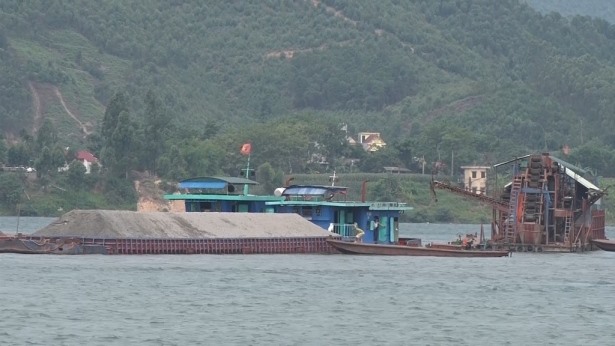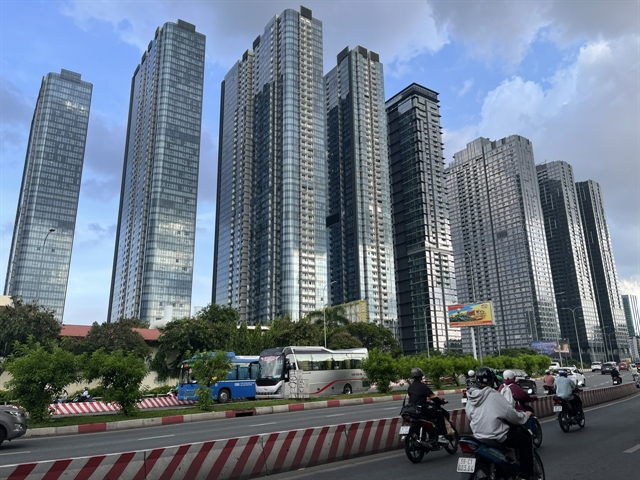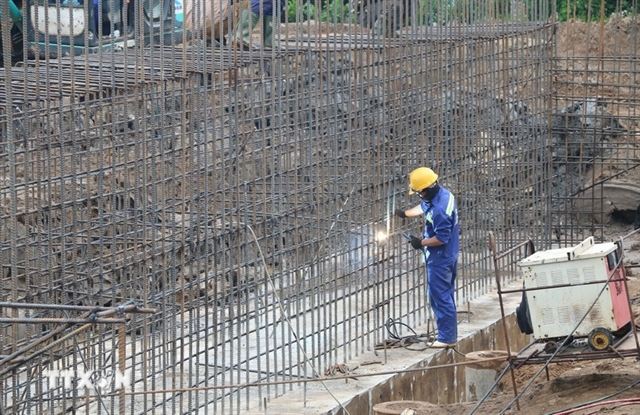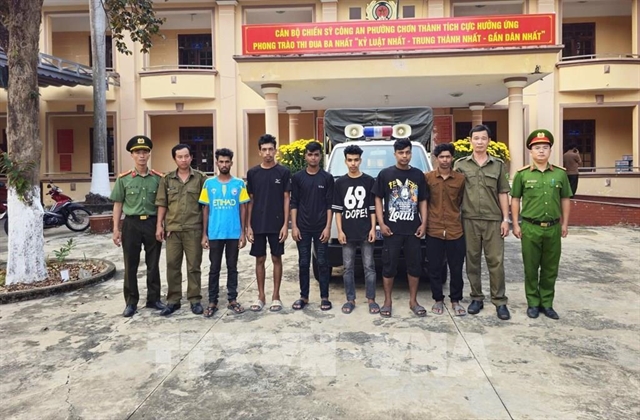 Society
Society

The Government held a meeting on Thursday to discuss urgent measures to limit illegal sand mining in the country, which has reached epidemic proportions in response to a boom in construction demand.
 |
| The Government held a meeting on Thursday to discuss urgent measures to limit illegal sand mining in the country, which has reached epidemic proportions in response to a boom in construction demand. — Photo vietnammoi.vn |
HÀ NỘI — The Government held a meeting on Thursday to discuss urgent measures to limit illegal sand mining in the country, which has reached epidemic proportions in response to a boom in construction demand.
The online meeting, chaired by Deputy Prime Minister Trương Hòa Bình, sought solutions to tighten State control over sand and gravel exploitation and trading. Participants said the demand for sand and gravel had dramatically increased and the trend would continue due to the burgeoning demand of infrastructure contruction.
Rampant illegal exploitation has been posing major challenges for law enforcement bodies. According to a report cited at the meeting, the country has 824 licensed sand and gravel mines and about 90 authorised projects of river-bed dredging.
However, Deputy Minister of Public Security, Senior Lieutenant General Lê Quý Vương, said the police had detected more than 4,300 violations in more than 8,000 inspections in the past year. The violations involved nearly 3,000 people and more than 1,000 facilities and equipment were seized. Criminal proceedings were only initiated in two cases.
Violations include excessive exploitation, exploitation at banned areas, or failing to follow proper procedures in trading exploited sand. They are particularly popular in the rivers of Hồng, Đà, Lô, and Thái Bình in the north, Lai Vu, Lam, Trà Khúc, Hương in the centre, and Sài Gòn, Đồng Nai, Tiền, Hậu in the south, Vương said.
Violators use different tactics to avoid detection, such as conducting their activities at night, on weekends or holidays. Some resorted to violence when facing authorities or engaged in turf fights with competitors.
More seriously, “there were cases where illegal activities were covered and protected by corrupt officials at commune and provincial levels and higher ones, too, and even by law protection bodies,” Vương said.
“If the current situation continues, our country’s resources will soon be depleted, erosion will occur along river banks, natural water flows will be changed, adversely affecting buildings along river banks and harming the life and property of people in adjacent areas,” Deputy PM Bình said.
The Ministry of Public Security (MoPS) proposed that the Government ask the Ministry of Natural Resources and Environment (MoNRE) to ban exploitation in areas highly prone to erosion and subsidence, or those where physical features of water and hydraulic power are likely to change.
The ministry also proposed that authorities inform police before granting permission to companies/organisations to exploit minerals, particularly sand and gravel, so that the police can monitor their activities.
Deputy Minister of Construction Bùi Phạm Khánh said the high demand for sand was due to the great amount needed for levelling the ground at construction projects. For example, tens of million of cubic metres of sand were used to level the ground for construction of National Highway 5, he said.
“The Ministry of Construction proposes that sand not used to level the ground, but only for building,” he said.
The MoNRE asked the Government to encourage research on alternative materials to replace sand and gravel in construction and levelling. The ministry also proposed banning sand export, even saline sand.
Many Vietnamese businesses have taken advantage of a 2013 law allowing them to export saline sand dredged from river/sea projects to reap profits, resulting in serious environmental impact due to overexploitation.
Đỗ Văn Đương, deputy head of National Assembly’s Ombudsman Committee, suggested the MoPS increase criminal proceedings against illegal exploiters. Investors of exploitation projects which cause land erosion must compensate local residents for damage, he said. — VNS




